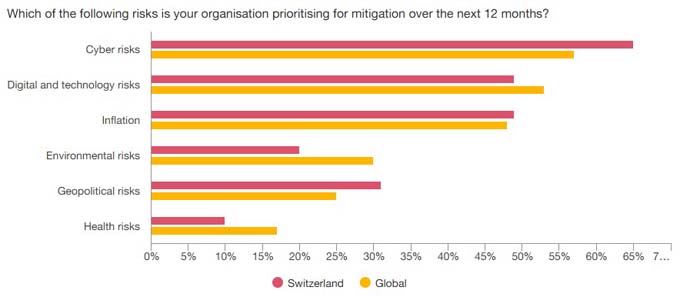Swiss demand more pay in 2025
The 2025 salary survey conducted by Swiss HR consultancy Robert Walters shows what salary increases professionals are expecting in the coming year. Charlotte Jacobs, Senior Manager at Robert Walters, explains the key findings of the survey.

Salary increase? Only if you have asked for it!
The Robert Walters salary survey shows that barely 34 % of Swiss employees spontaneously received a pay rise from their employer last year. 7 % needed to take the initiative, while 11 % first had to change employer in order to receive a raise. One in three did not ask for a pay rise and therefore received nothing, while 14 % saw their request turned down.
"Over the past year, we have found that many employers have been reactive rather than proactive," says Charlotte Jacobs. "However, if companies want to retain their best talent, they need to pay more attention to rewarding and valuing employees without having to ask for it themselves."
Barely half are satisfied with their current salary
The same survey shows that only 4 % of employees in Switzerland are 'very satisfied' with their current salary including benefits. 30 % describe themselves as 'satisfied', but see room for improvement. Just over a quarter (27 %) are 'neutral', while 36 % are 'dissatisfied' because they feel that their salary package does not meet their expectations or market standards.
"A competitive salary package is no longer a nice-to-have, it's a must," emphasizes Charlotte Jacobs. "Employers need to understand that dissatisfaction with salary can quickly lead to a loss of talent. In fact, 46 % of professionals surveyed are considering changing jobs if they don't receive a pay rise in the next 12 months."
Expectations for 2025
Robert Walters also examined expectations with regard to salary development. And these are high: 73 % of the professionals surveyed are optimistic and expect a salary increase in 2025.
One in four (24 %) are hoping for a moderate increase of 1-5 %, while 13 % are aiming for an increase of 6-10 %. 14 % are aiming for a larger increase of 11 % or more. However, one in five are less confident and consider it unlikely that they will receive a pay rise in the coming year.
"Salary increases are still important, but they are not the only factor in job satisfaction," says Charlotte Jacobs. "Professionals value the total package: a competitive salary and the ability to work from home, combined with alignment with the company's values, appropriate job content, growth prospects, accessibility and effective management."
What will employers do?
More than half of employers (51 %) believe that their employees are satisfied with their current salary package, while 30 % are convinced of the opposite. Despite these perceptions, 74 % of employers plan to increase salaries by 2025. To keep employees happy, employers have also introduced additional benefits in the last year, such as an (optimized) bonus system, company shares, additional vacation days or external training opportunities.
"It is positive to see employers investing in additional benefits, but this should not be a substitute for a competitive salary," warns Jacobs. "A good overall package combines a competitive salary with benefits that meet employees' needs."
These figures highlight the importance of a strategic approach to salary packages and benefits to attract and retain talent in a competitive labor market. Take advantage of the free digital salary survey tool by Robert Walters to compare salaries.
Source: www.robertwalters.ch






















